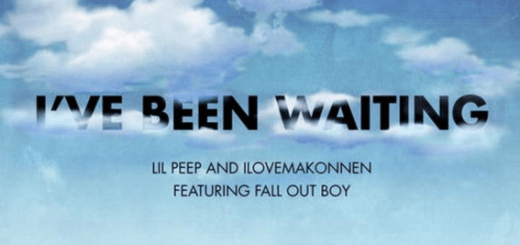Get Busy Living or Get Busy Dying (Do Your Part to Save the Scene and Stop Going to Shows) by Fall Out Boy Lyrics Meaning – Uncovering the Angst and Anthem of a Generation,
Lyrics
That I’m not sure if it matters
But we never stood a chance
And I’m not sure if it matters
If you are the shores
I am the waves begging for big moons
(Moons)
I’m mailing letters to addresses in a ghost town, no oh
Your secret’s out
I know this hurts, it was meant to
(It was meant to)
Your secret’s out and the best part
Is it isn’t even a good one
And it’s mind over you don’t, don’t matter
This has been said so many times
That I’m not sure if it matters
But it must, be said again
That all us boys are just screaming
Into microphones for attention
Because we’re just so bored
(Oh, oh, oh)
We never knew that you would pick it apart, oh
I’m falling apart to songs about hips and hearts
Your secret’s out
I know this hurts, it was meant to
(It was meant to)
Your secret’s out and the best part
Is it isn’t even a good one
And it’s mind over you don’t, don’t matter
I used to obsess over living
Now I only obsess over you
You tell me you’d like boys like me better
In the dark lying on top of you
This has been said so many times
That I’m not sure if it matters
This has been said so many times
That I’m not sure if it matters
This has been said so many times
That I’m not sure if it matters
I know this hurts, it was meant to
(It was meant to)
Your secret’s out and the best part
Is it isn’t even a good one
And it’s mind over you don’t, don’t, don’t, don’t matter
From day one I talked about getting out
But not forgetting about
How my worst fears are letting out
He said “Why put a new address on the same old loneliness?”
When breathing just passes the time
Until we all just get old and die
Now talking’s just a waste of breath
And living’s just a waste of death
And why put a new address on the same old loneliness?
And this is you and me and me and you
Until we’ve got nothing left.
The sheer rawness of emotions laid bare in the track ‘Get Busy Living or Get Busy Dying’ by Fall Out Boy transcends the usual pop-punk fare, weaving a complex tapestry of youthful disenchantment and a longing for something more meaningful. This track, nestled within their seminal album, ‘From Under the Cork Tree’, encapsulates the angst and aspirations of a generation caught between the incessant drive for growth and the sobering realities of life’s often monotonous trajectory.
Through a forensic lens, this article endeavors to dissect the nuanced layers embedded within the band’s rousing anthem. Every verse and chorus offer much more than a cursory lament on youth’s fleeting nature; they unravel a philosophical musing on existence itself, challenging listeners to decode the emblematic cries for purpose in a world saturated with superficiality.
The Echo of Repetition: A Stance on Monotony
Encapsulated in the song’s recurring line, ‘This has been said so many times that I’m not sure if it matters,’ lies a meta-commentary on the cyclical nature of discourse within the music scene. The message is potent and bleak: the repetition of words and lyrics often falter in their desired impact, fading into the background noise of the ever-growing ocean of content. Here, Fall Out Boy pinpoints the danger in endless replication without evolution – a malaise that threatens to deaden even the most vibrant of societal enclaves.
The sentiment mirrors a broader societal commentary, where the voices of youth are broadcast loudly yet often go unheard amidst the cultural clutter. The sense of futility is a siren call for change, a provocation to disturb the stagnant waters of conventionality. By doing so, the band challenges its audience to question their contributions to the ‘scene’ and, indeed, to the fabric of their generation’s cultural construct.
Navigating Personal and Collective Heartache
‘Your secret’s out, and the best part is it isn’t even a good one.’ With these lyrics, Fall Out Boy touches upon the often dramatized unveiling of personal turmoil within the public arena of the music scene. The revelation of someone’s secret, presumably a regretful or painful truth, is downplayed as trivial in the grand scheme of things, further highlighting the jaded perspective with which the narrators view their reality.
This approach to confession is reflective of a generation’s disillusionment with the over-sensationalized personal trials paraded in media – especially within the realm of celebrity culture. It underscores an atmosphere of disconnection and cynicism, positing that these once-revered truths and exposures barely scratch the surface of deeper societal issues.
The Irony of Escapism in Music
‘Mailing letters to addresses in a ghost town’ – one of the song’s most haunting visuals – serves as a metaphor for the attempt to connect within a community that may already be too far gone. This eerie imagery conveys an essential paradox within the music scene and society at large: the desperate longing for connection in an environment that increasingly feels lifeless or abandoned.
The ghost town is the collective psyche drained of its vitality, wherein escapism through music becomes less of an active pursuit and more of a hollow gesture. The chorus, which speaks to dismantling one’s sense of purpose in pursuit of ephemeral thrills, offers a stark warning against complacency. The band touches on the notion that, while music offers a respite from reality, it should also inspire action and passion beyond the realms of melody and rhythm.
An Inescapable Web of Existential Crises
Perhaps the song’s most haunting contemplation is reflected in the lines ‘Breathing just passes the time, Until we all just get old and die.’ Here, Fall Out Boy encapsulates a spirit of nihilism set against a backdrop of societal and personal ennui. This stark acknowledgment of life’s finiteness brings to the fore the pressing urgency to derive meaning from the present, amidst a world that often feels aimlessly transient.
The pervasive sense of existential dread that permeates the song serves as a reminder of our mortality, urging listeners to seek out authentic experiences and relationships over superficial engagements. In choosing to highlight these aspects of human existence, the band invites its audience to confront their understanding of life’s purpose, suggesting that inaction is a silent submission to oblivane.
Unveiling the Hidden Heart of Rebel Anthems
At its core, ‘Get Busy Living or Get Busy Dying’ is more than just an indictment of hollow life experiences; it is also a rallying cry for agency and authenticity. ‘Why put a new address on the same old loneliness?’ reflects the daunting feeling of irrelevance that festers when life’s larger narrative remains unchanged despite superficial shifts in scenery.
The song implores individuals to be mindful of the life they craft, to recognize the potential for reinvention and the dangers of complacency. It carries within its riffs and refrains a deeper message about legacy and the human desire to leave an imprint that stretches beyond the echo of their voice. Artistically, the song aspires to galvanize listeners into reevaluating their priorities and contemplating their role in a narrative larger than themselves – a legacy that, ideally, resonates with purpose and vitality.








